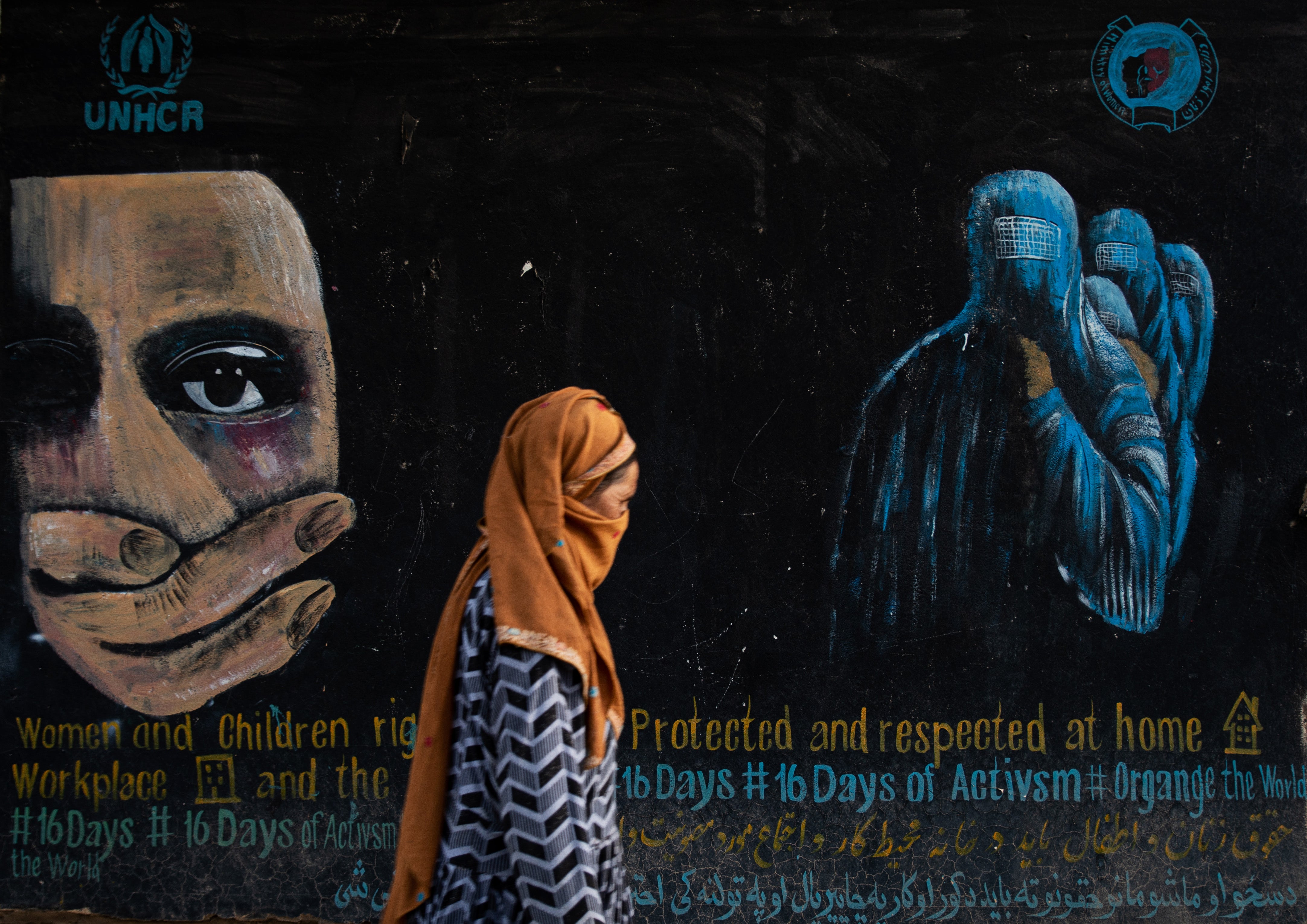G7 calls on Taliban to reverse women aid workers ban as UN suspends ‘time-critical’ programmes in Afghanistan
‘Banning women from humanitarian work has immediate life-threatening consequences for all Afghans’

Your support helps us to tell the story
From reproductive rights to climate change to Big Tech, The Independent is on the ground when the story is developing. Whether it's investigating the financials of Elon Musk's pro-Trump PAC or producing our latest documentary, 'The A Word', which shines a light on the American women fighting for reproductive rights, we know how important it is to parse out the facts from the messaging.
At such a critical moment in US history, we need reporters on the ground. Your donation allows us to keep sending journalists to speak to both sides of the story.
The Independent is trusted by Americans across the entire political spectrum. And unlike many other quality news outlets, we choose not to lock Americans out of our reporting and analysis with paywalls. We believe quality journalism should be available to everyone, paid for by those who can afford it.
Your support makes all the difference.The G7 has called on the Taliban to reverse its “reckless and dangerous” ban on women aid workers, after the UN was forced to suspend several “time-critical” programmes in Afghanistan.
Foreign ministers from the global group said in a joint statement they were “gravely concerned that the Taliban’s reckless and dangerous order ... puts at risk millions of Afghans who depend on humanitarian assistance for their survival”.
“We call on the Taliban to urgently reverse this decision,” they said.
It comes after the UN aid chief, Martin Griffiths, the heads of UN agencies and several aid groups said in a joint statement on Wednesday that the programmes have been temporarily suspended due to the lack of female staff members.
The UN also warned that many other activities and programmes in the country might also be affected by the Taliban’s ban on women aid workers. Mr Griffiths said that the women staffers’ “participation in aid delivery is not negotiable and must continue”.
He continued: “Banning women from humanitarian work has immediate life-threatening consequences for all Afghans. Already, some time-critical programmes have had to stop temporarily due to lack of female staff.”
The statement said that “we cannot ignore the operational constraints now facing us as a humanitarian community. We will endeavour to continue lifesaving, time-critical activities ... But we foresee that many activities will need to be paused as we cannot deliver principled humanitarian assistance without female aid workers”.
This comes just days after a top UN official in Kabul met with a Taliban government minister in Afghanistan’s capital.
The move to bar women from working for non-governmental organisations – the latest in restrictions on women’s rights and freedoms in Afghanistan – was announced on Saturday by Qari Din Mohammad Hanif, the Taliban economy minister. It was imposed allegedly because some female NGO employees in Afghanistan were not wearing the hijab correctly.
The UN mission in Afghanistan said in a tweet that its acting head, Ramiz Alakbarov, met with Mr Hanif on Monday and called for a reversal of the ban.
“Millions of Afghans need humanitarian assistance and removing barriers is vital,” the UN said.
Since the ban was announced, at least six major international aid agencies shave topped their operations in Afghanistan, saying they could not effectively reach people in desperate need without their female workforce.
The agencies – Christian Aid, ActionAid, Save the Children, the International Rescue Committee, the Norwegian Refugee Council and CARE – have been providing healthcare, education and child protection to combat plummeting humanitarian conditions.
Meanwhile, the United Nations Security Council (UNSC) has also asked the Taliban to roll back “the decree issued on 24 December barring women from working in national and international NGOs” and said that it was “yet another stark violation of women’s rights and humanitarian principles”.
Sima Bahous, UN Women executive director, earlier this week said that once again the Taliban have found “new ways to harm the women and girls” in Afghanistan.
“This is relentless misogyny, a virulent attack on women, their contribution, their freedom and their voice. It is yet another repudiation of every norm and standard of women’s human rights and respect for human dignity,” Ms Bahous said on Tuesday.
The UN’s secretary general Antonio Guterres also called the latest restrictions by the Taliban on employment and education of women and girls “unjustifiable human rights violations” and said that “actions to exclude and silence women and girls continue to cause immense suffering and major setbacks to the potential of the Afghan people”.
Join our commenting forum
Join thought-provoking conversations, follow other Independent readers and see their replies
Comments